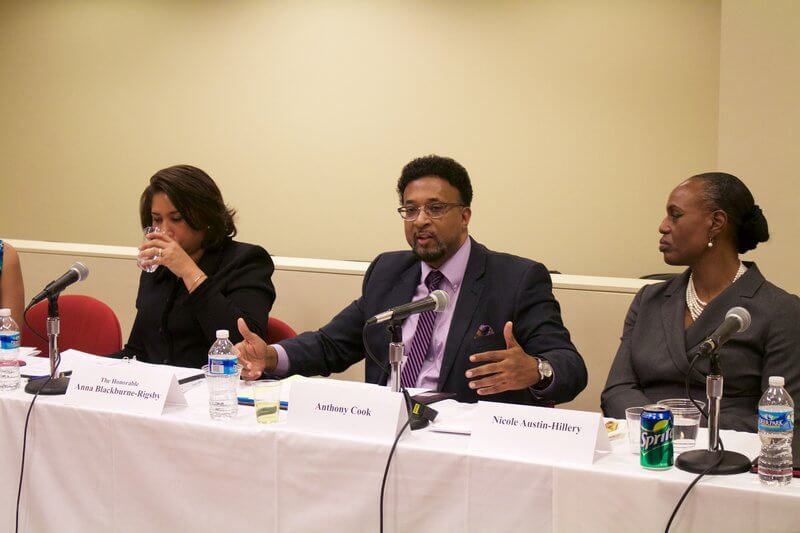
Racial Justice Recap: Ferguson, and the Need for Authentic Discussion About Racism
By Robin Murphy
The recent killings of Michael Brown, Eric Garner, and Tamar Rice illustrate the continuing need for lawyers to commit time and energy to eradicate discrimination and violence against people of color and build an inclusive society that enables everyone to succeed. In the first installment of our Racial Justice Series, which we are cosponsoring with the National Legal Aid & Defender Association, we examined the events in Ferguson and explored how to address ongoing racism in the justice system.
The panel was moderated by Camille Holmes, Director of Leadership and Racial Equity at the National Legal Aid & Defender Association. Each of the panelists brought has significant experience and expertise in the areas of civil rights and racial justice, and each brought unique perspectives to the discussion.
Judge Anna Blackburne-Rigsby (DC Court of Appeals) described the need for all participants in a democracy to be informed and engaged. She recounted how racism is imbedded in our justice system, dating back to the Constitution’s Three-Fifths Clause and the Supreme Court decisions in Dred Scott v. Sandford and Plessy v. Ferguson. Judge Blackburne-Rigsby also shared her recent experience with the DC judiciary, as judges examined their own implicit biases and discovered the need for greater self-examination.
Nicole Austin-Hillery (Brennan Center for Justice) likewise explained how many discriminatory policies are rooted in law, pointing to the disproportionate representation of black males in our prisons and the severe collateral consequences of a criminal conviction – such as the loss of the right to vote, to public housing and access to student loans. She added some good news: there is true reform occurring on Capitol Hill, with several bipartisan bills seeking to reform prison and sentencing.
Georgetown Law professor Anthony Cook urged participants not only to think about the traditional roles of lawyers, but also to be disruptive. He pointed to the effectiveness of recent demonstrations around the country – including at Georgetown Law – such as die ins, teach ins, and black-lives-matter demonstrations. These and other efforts are essential to what he described as “bias interruption” – stopping bias from harming people of color.
Each panelist stressed the need for more authentic and honest conversations about race and racism. The panel ended with an invitation to each attendee to choose an action that could advance that conversation – from understanding our own implicit biases to interrupting that bias to engaging in analysis and multi-layered strategies to address the structural system of racism.
You can get more detail about the panel – including tweets, photos, and links to many of the cases, events, and studies discussed – by checking out our Storify of the event.
We’ll be scrutinizing the concept of implicit bias at the next installment in our Racial Justices Series. This event – Below the Surface: Exploring Implicit Bias in Ourselves and the Legal System – is a hands-on workshop exploring implicit bias and how it may impact your practice, your workplace, and the legal system.
Robin Murphy is a member of our Board of Directors. By day, she is a lawyer at the National Legal Aid & Defender Association.






